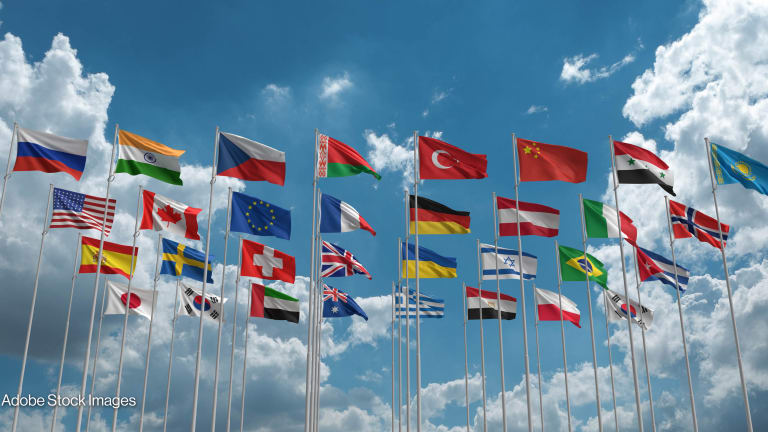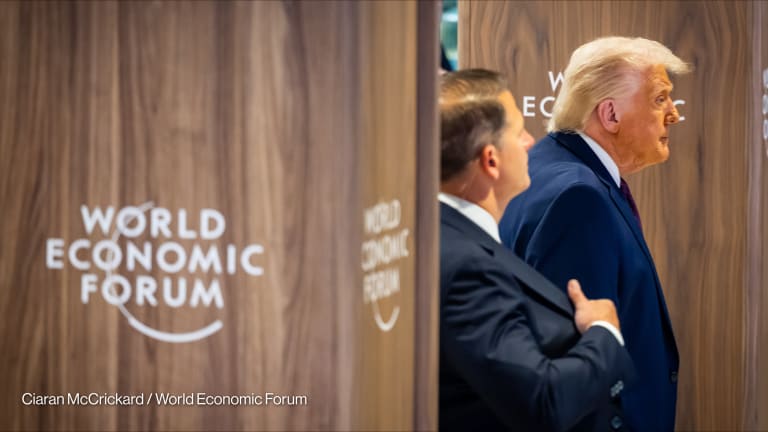
As Neven Mimica hangs up his boots as the European Union’s commissioner in charge of development cooperation, it is worth reflecting on his legacy and on whether the machine he steered is set to tackle future challenges under his successor, Jutta Urpilainen.
Much is to be lauded when it comes to the EU’s engagement in development cooperation. For many years, it has been one of the last bastions of budget support — where governments transfer resources to other governments to use as they see fit to combat poverty, which is widely considered the most effective way to establish real development partnerships.
Opinion: What’s to come for the changing world of development
At the end of his five-year mandate, Neven Mimica, European commissioner for international cooperation and development, reflects on his time in office.
This instrument-led approach, while technocratic, has limited the political machinations and chicanery that is part and parcel of development cooperation. Whereas many donors use their development resources as an extension of foreign policy, the EU has maintained a healthy firewall between commitment to development, on the one hand, and political self-interest on the other.
But all of this seems to be changing with an emerging “policy-driven” approach of the new European Commission, in which development objectives will be subsidiary to the wider EU strategy. During his term, Mimica had a foot in each of the camps, continuing many of the best practices of budget support but also laying the ground for a shift toward policy-driven EU development cooperation.
Real partnerships require actual equality
One striking change in rhetoric from Mimica’s tenure is that the countries in which the EU operates are no longer referred to as “beneficiaries” or “recipients,” but rather as “partners.” This language — mirrored by the development wings of many EU foreign ministries — was intended to move Europe away from a colonial discourse on aid and toward a rights-based approach to development.
The rationale is correct, and language does matter. This shift is significant in terms of what is implied when the EU engages in development cooperation with another country. The term “partnership” indicates a level of equality in both decision-making and risk-sharing. Historically, part of what has worked well in EU budget support has been exactly these types of partnerships, in which both parties undertake significant risks in the interest of achieving development objectives.
However, with recent developments, it seems somewhat dishonest to claim that the EU currently engages in real partnerships. The relationship between any donor and recipient is always skewed in favor of the donor when there is a transfer of resources involved. More specifically, the unequal relationship between the EU as a donor and its recipients is clearly demonstrated by how the EU has increasingly incorporated conditionality in its work with third-party countries to address the so-called migration crisis. Thus, what used to be partnerships of equals have quickly been transformed into contractual arrangements under which lower-income countries became implementers of EU foreign policy objectives.
Lack of unity
Another rhetorical artifact that developed during Mimica’s stewardship has been to consistently refer to the EU as a “bloc” in terms of development cooperation. In public statements, the EU refers to itself as “the world’s largest donor of development aid.” While technically true, if the contributions of all its member states are counted, this is a somewhat misleading statement. One could similarly argue that the OECD is the largest donor of development aid.
Referring to itself in this way implies a level of coordination and coherence that does not exist. The EU as an institution continues to behave as a bilateral donor, and so do its member states. At times they are capable of coordinating. But on many occasions, the EU institutions are at odds with member states in multilateral forums, such as in discussions around the incorporation of private sector instruments in ODA reporting at the OECD’s Development Assistance Committee.
Private sector subsidies reshaping development aid
One of the real and lasting impacts of Mimica’s term will be the EU’s entry into the realm of subsidizing private finance, and the private sector more broadly, in development cooperation. While blended finance — which mixes private and public finance — has been in the EU’s arsenal of instruments for nearly a decade, the scale of ambition has increased drastically under Mimica’s leadership.
The current European Investment Plan, and the regulation forming the European Fund for Sustainable Development, will provide €4.5 billion ($5 billion) in public subsidies to private sector actors and development banks that engage with the private sector. These measures seek to reshape the very definition of development aid in the process.
Much of this money will come in the form of guarantees, which means there will be no actual transfer of resources from the EU to poor countries. Instead, these guarantees will absorb the risk of other development banks so they can scale up their engagement with private actors. It is questionable whether these guarantees will, in fact, mobilize new resources, or rather result in money being squirreled away from programs that really help people living in poverty.
During his term, Mimica has sought to build bridges between the old-and-tested and the new-and-shiny. Much of what has been done over the last five years is a continuation of established best practice from a unique donor who had proven to be a decent partner to the countries it engaged with. But what he leaves behind is a shift away from the tried-and-true approach to new and shiny things that could fundamentally change how the EU engages in development cooperation.
It will be up to Mimica’s successor to steer the ship through those waves now — and hope it doesn’t end up on the rocks.








